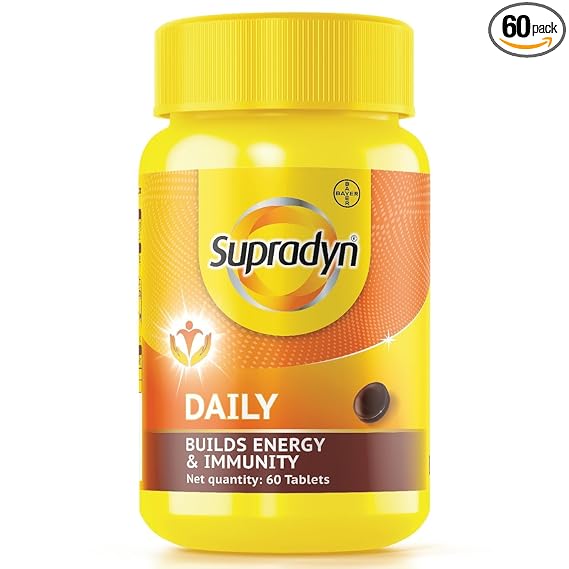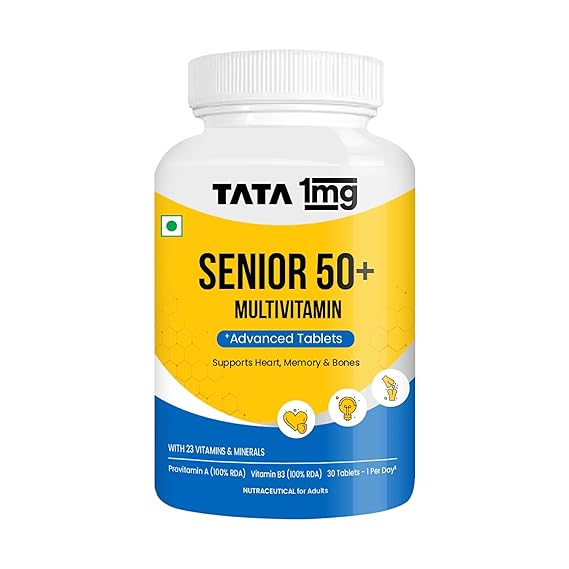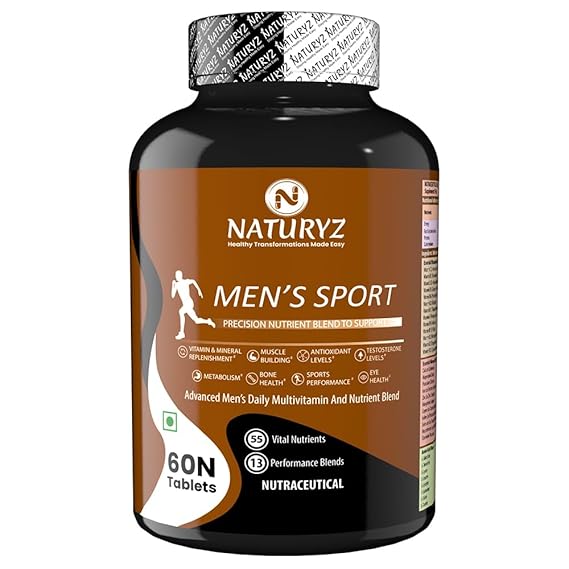Are Multivitamins Really Necessary — or Just a Waste of Money?
Introduction
Walk into any pharmacy or supermarket, and you’ll see shelves packed with colorful bottles of multivitamins promising everything from boosted immunity to better brain function. It’s tempting to think that one pill a day can fill the gaps in your diet. But do you really need them? Or are multivitamins just another health industry cash grab?
In this blog, we’ll break down what multivitamins are, the science behind them, their potential benefits, possible risks, and whether they’re worth your money.

What Are Multivitamins?
Multivitamins are dietary supplements containing a combination of vitamins and minerals — often alongside other ingredients like herbal extracts or amino acids. They’re designed to provide nutrients that you may not get in sufficient amounts from your daily diet.
A standard multivitamin might include:
- Vitamins: A, C, D, E, K, and B-complex (B1, B2, B6, B12, niacin, folate, biotin, pantothenic acid)
- Minerals: Calcium, magnesium, zinc, iron, potassium, and selenium
- Optional Additives: Omega-3s, probiotics, antioxidants
Forms available: tablets, capsules, powders, liquids, and even gummies.
Why People Take Multivitamins
People choose multivitamins for various reasons:
- Dietary gaps — Not everyone eats a balanced diet daily.
- Busy lifestyle — Convenience of getting “all nutrients in one pill.”
- Specific health goals — Better skin, improved immunity, or enhanced energy.
- Age-related needs — Seniors may need more vitamin D, calcium, or B12.
- Medical conditions — Some health issues interfere with nutrient absorption.
- Pregnancy — Prenatal vitamins are essential for fetal development.
Do Multivitamins Really Work?
This is where science has mixed opinions.
The Research
- Supportive studies:
Some research shows multivitamins can help people with poor diets or nutrient deficiencies. For example, folic acid reduces neural tube defects during pregnancy, and vitamin D helps maintain bone health. - Contradictory studies:
Large-scale studies, such as those published in the Annals of Internal Medicine, suggest that for most healthy adults, multivitamins offer little to no benefit in preventing chronic diseases like cancer or heart disease.
The Expert Opinion
Nutrition experts agree that multivitamins should supplement a healthy diet — not replace it. You can’t expect to eat fast food every day and have a pill undo the damage.

-
Potential Benefits of Multivitamins
While they aren’t miracle pills, multivitamins can be beneficial in certain situations:
- Correcting Deficiencies
- People with limited diets (vegans, those with food allergies, elderly) may lack specific nutrients like B12, iron, or vitamin D.
- Improved Energy Levels
- A deficiency in B vitamins or iron can lead to fatigue. Correcting these can improve energy and focus.
- Pregnancy Support
- Prenatal multivitamins with folic acid, iron, and calcium are vital for healthy fetal growth.
- Supporting Immunity
- Vitamins like C, D, and zinc contribute to immune system function — useful during flu season or recovery from illness.

Potential Downsides and Risks
Just because something is sold over the counter doesn’t mean it’s risk-free.
1. Overdose Risks
- Fat-soluble vitamins (A, D, E, K) can accumulate in the body and cause toxicity if overconsumed.
- Too much iron can cause liver damage or gastrointestinal issues.
2. False Sense of Security
- Relying on pills might make you ignore your diet quality, leading to poor nutrition overall.
3. Unregulated Quality
- Supplements are less strictly regulated than prescription drugs. Some may contain inaccurate ingredient amounts or contaminants.
4. Interactions with Medications
- For example, vitamin K can interfere with blood thinners, and high doses of vitamin E can increase bleeding risk.
Looking for a trusted multivitamin? Here’s the one I recommend Supradyn Daily Multivitamin Tablets
Who Might Actually Need Multivitamins?
While healthy adults who eat balanced diets may not need them, these groups could benefit:
- Pregnant women — Prenatal vitamins are essential.
- Older adults — Higher risk of B12, vitamin D, and calcium deficiencies.
Looking for a trusted multivitamin? Here’s the one I recommend Tata 1mg Multivitamin
- Vegans & vegetarians — Risk of B12, iron, and omega-3 deficiencies.
- People with restrictive diets — Such as those on medical elimination diets.
- Certain medical conditions — For example, celiac disease, Crohn’s disease, or after bariatric surgery.
Natural Alternatives: Getting Nutrients from Food
A well-balanced diet is still the gold standard for nutrient intake.
Focus on:
- Fruits & vegetables — Rich in vitamins, minerals, and antioxidants.
- Whole grains — Provide B vitamins, fiber, and minerals.
- Lean proteins — Eggs, poultry, fish, legumes for iron and amino acids.
- Healthy fats — Nuts, seeds, olive oil, avocado for vitamin E and omega-3s.
Tip: If you eat the recommended variety of foods, you may not need a daily multivitamin.
Looking for a trusted multivitamin? Here’s the one I recommend Naturyz Mens Sport Advanced Multivitamin Tablet
How to Choose the Right Multivitamin
If you and your doctor decide a multivitamin is right for you:
- Check nutrient amounts — Avoid exceeding 100% of the daily recommended intake unless advised by a doctor.
- Look for quality seals — USP, NSF, or other third-party testing certifications.
- Avoid unnecessary additives — Stay away from artificial colors or excessive fillers.
- Tailor to your needs — Men, women, seniors, and children often have different nutritional requirements.

Final Verdict: Necessary or Waste of Money?
For most healthy adults eating a varied diet, daily multivitamins might not offer dramatic health benefits — and could be unnecessary. However, for people with certain lifestyle factors, dietary restrictions, or medical conditions, they can be a valuable supplement.
The key takeaway:
- Don’t replace a healthy diet with pills.
- Use them when there’s a proven need.
- Always consult your healthcare provider before starting any supplement.
Quick Summary Table
|
Question |
Answer |
|
Are they necessary for everyone? |
No — only for certain groups with deficiencies or higher nutrient needs. |
|
Can they replace a healthy diet? |
No — supplements can’t match the complexity of whole foods. |
|
Are there risks? |
Yes — overdose, poor quality, drug interactions. |
|
Who should consider them? |
Pregnant women, elderly, vegans, restrictive diets, certain medical cases. |
Multivitamins aren’t magic bullets, but in the right context, they can help fill nutritional gaps. Use them wisely, choose quality brands, and focus on real food first.








